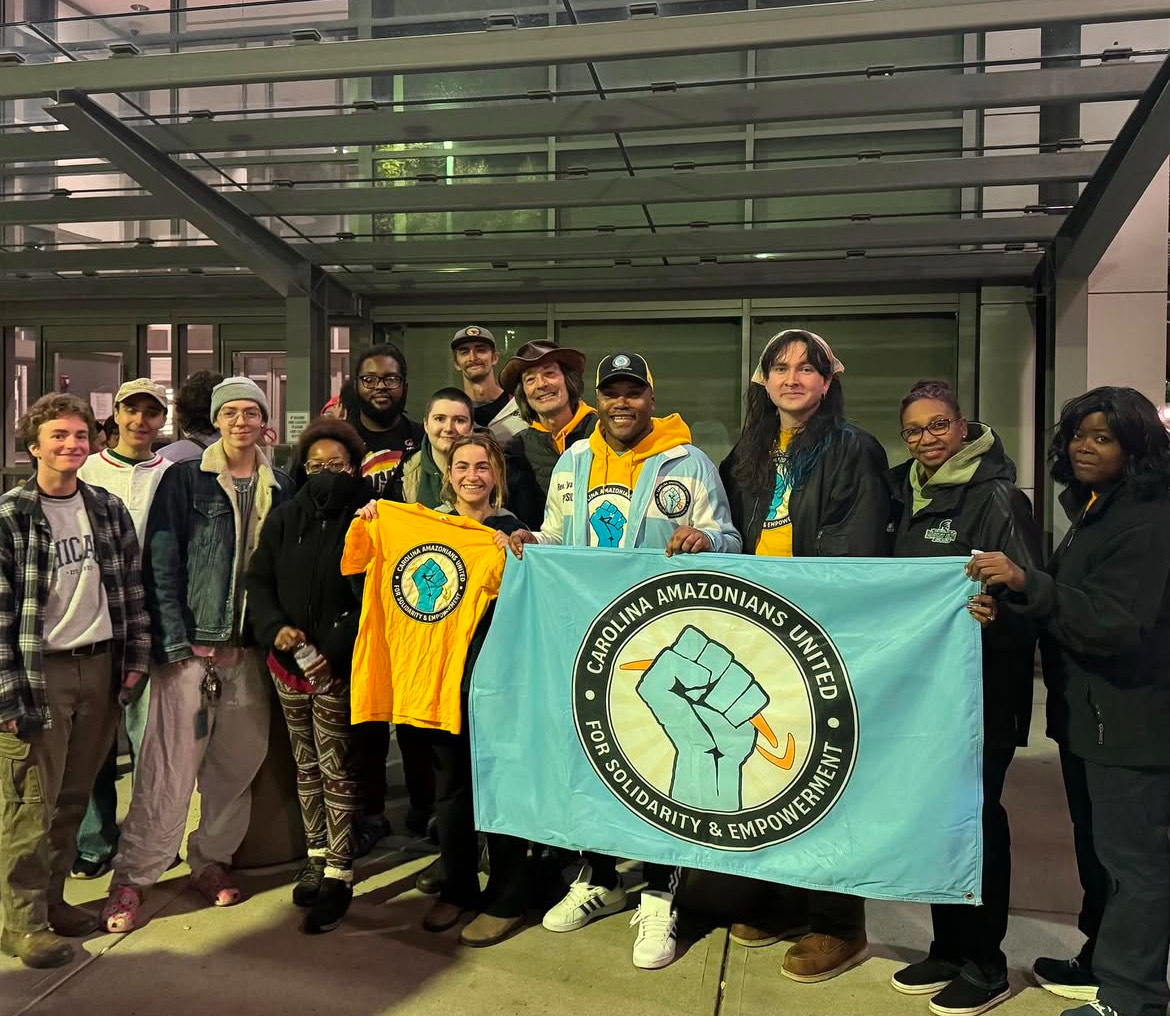
Harlem residents watch Obama's speech at the Harlem Center for Change. Photo by Elisa Lagos.
Leaning against a table in a small, crowded room in Harlem, Janice Williams watched as President Obama spoke last night about his plan to reform healthcare.
Williams, a retiree from Harlem, stood alongside nearly 50 other area residents who gathered at the Harlem Center for Change at Frederick Douglass Boulevard and 132 street, to hear the President’s speech. The people were as varied as the city itself. In Harlem, a cultural hub of the city’s African American population, blacks, whites, and hispanics all converged to try and make sense of the healthcare proposals.
For these different Harlem residents healthcare reform is not about race, it’s about economics.
“I find if you’re poor enough, no matter what your ethnicity, you can get healthcare, even it’s through Medicaid, ” said Janice Williams, a retiree from Harlem. “It’s the midddle class people who have jobs that can’t afford to go to the doctor. They can’t afford to take care of their kids. If they get sick, they damn near lost their house.”
The latest figures show that 20.9% of African Americans and 33.5% of Hispanics are uninsured, compared to 12.2% of Whites, according to the non-profit Kaiser Family Foundation. Still the biggest disparity is not necessarily between ethnicities, but between social classes. The costs of healthcare jumped 81% per person in 10 years. This surge puts a strain on the middle class whose out of pocket costs continue to increase even as average incomes stagnate.
Pauline Cole, a public school teacher, has insurance, but it’s not enough to cover her prescriptions. Her insurance refused to pay for a medication to treat her Fibromyalgia. Williams is left with no choice but to struggle through the pain even as her premiums increase.
“I don’t have the expectation that things are going to be done immediately, but I can’t afford to wait much longer,” Cole said.
Cole is not alone. Insurance premiums are on the rise, forcing many to cut corners on health insurance. Premiums in 2008 averaged $12,298 for family coverage. Premiums are projected to jump 94% in 12 years if costs aren’t reigned in.
The high costs makes it harder for self-employed and especially the growing number of unemployed in the middle class to afford coverage.
That could spell even more trouble for the healthcare system. As the unemployment rate continues to increase because of the recession, so will the number of uninsured.
” I fall into this gap where I don’t qualify for Medicaid but at the same time I can’t afford to go to the doctor right now,” said Esmar Sullivan, who recently lost her job. “I had pretty good insurance back when I was employed.”
But even with decent healthcare, the costs of a prescription in her plan doubled.
“They were able to just double the costs and there was nothing I could do about it,” she said. “I had no other option.”

